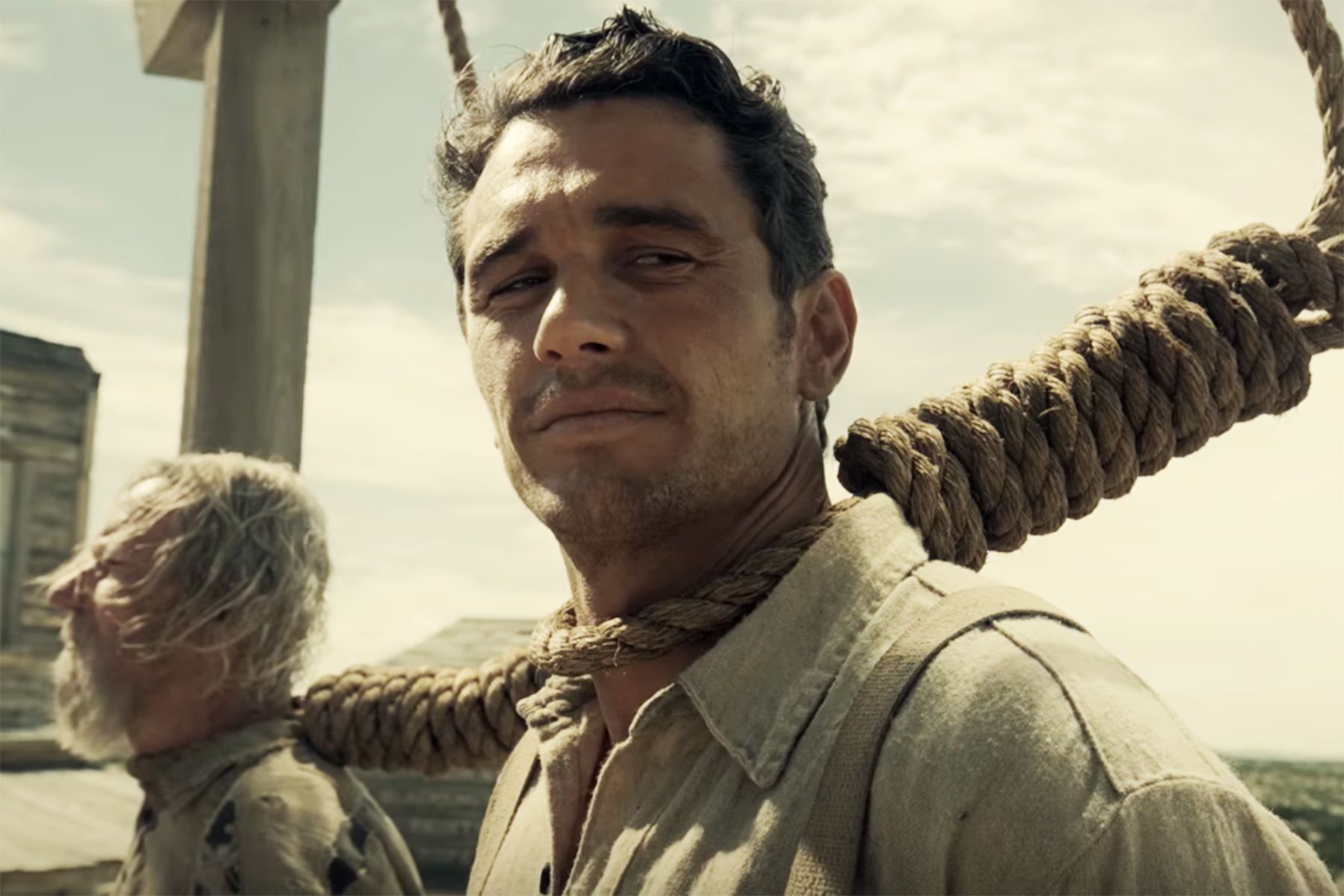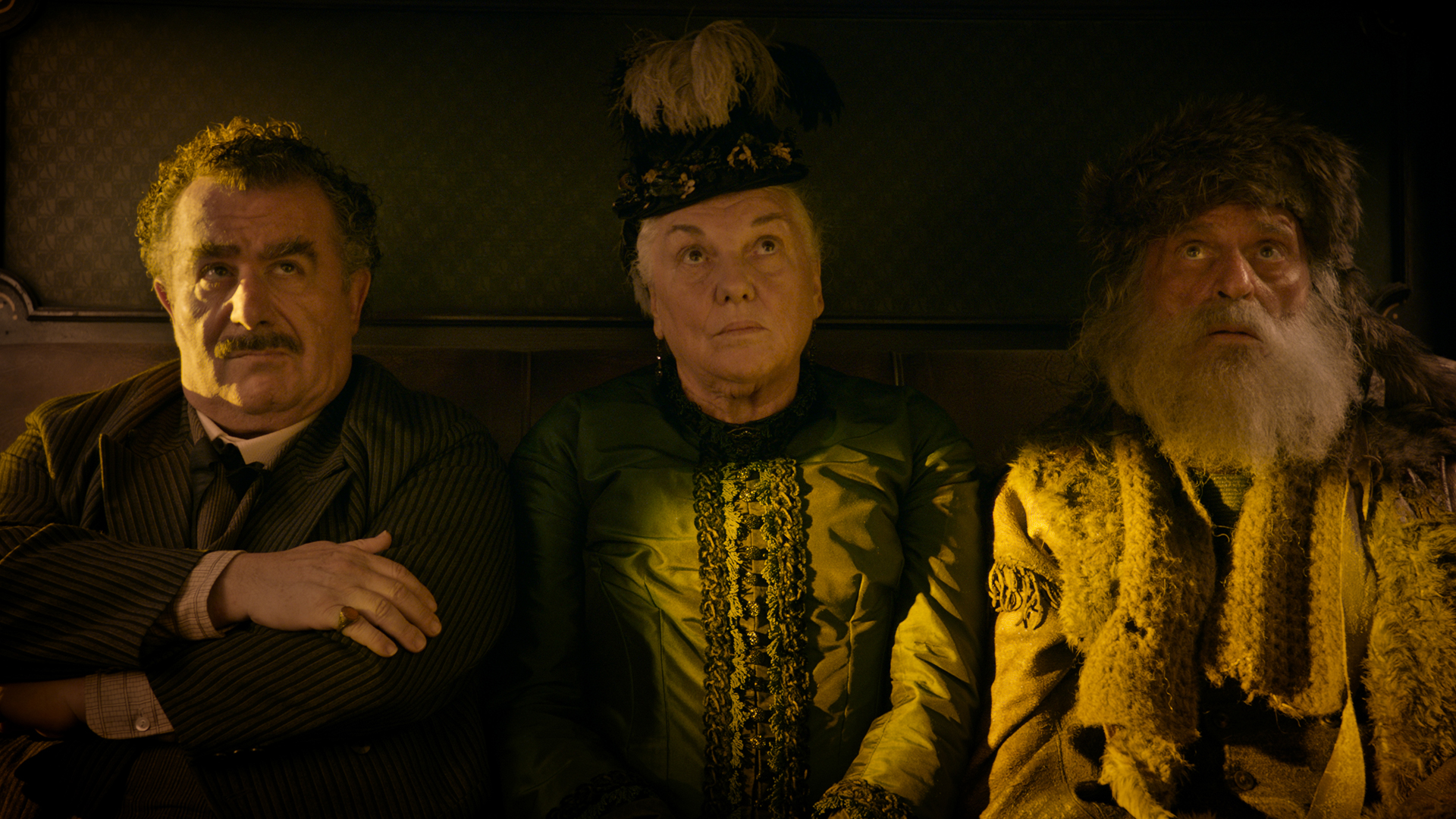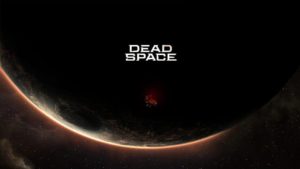
The Coen brothers are two of the most celebrated voices in Hollywood, their screenplays often taking viewers through darkly comic journeys which delve into the grim depths of our collective psyches. They are experts at crafting stories centered on our more violent inclinations, and are equally skilled at sometimes eliciting laughs during these supposedly grave scenarios. In short the duo are masters of tone and tension, able to effectively transition between white-knuckled action and humor at a moment’s notice. Their latest film, The Ballad of Buster Scruggs, was originally envisioned as a short television series, but in the end it’s six vignettes have been bundled up into a single one hundred and forty three minute western anthology.
While the stories are exceedingly distinct in terms of their content and visual presentation they are unified in that, for better or worse, they feel like a summation of the duo’s inclinations as storytellers. Working as microcosms of their body of work, some of these stories are entirely comedic in tone, poking fun at western tropes to the point of parody. The best of the stories oscillate between funny, and grim, and back to funny, the perceived cheap cost of life in the West a consistent gag. However, another tale is so uncompromisingly grim, gazing deeply into the abyss of greed and abject cruelty, that it would likely be unbearable if it was a minute longer.
The merits of the shorts differs drastically, making it worthwhile to at least briefly touch upon each separately. It begins with the titular Ballad of Buster Scruggs, an outright farcical take on the gunslinger mythos. Buster is the center of our attention, a murderous bard and outlaw whose cherry disposition contradicts his murderous intent. He dispatches his foes with a cartoonish proficiency, all the while making light of his butchered enemies with song and dance. Things get decidedly slapstick as the film comes out of the gate lampooning the genre, and the oddly charming Scruggs makes for a likable lead. Next is Near Algodones, which depicts a bank robbery gone wrong. Wry gallows humor replaces the violent but lighthearted affairs of the previous story, with James Franco playing an outlaw who is as unlucky as he is incompetent. The general tonal shift from the first story is matched by an aesthetic one, the bright lighting of Scrugg’s world replaced by a sepia tone that denotes a more tense atmosphere. Unfortunately this short doesn’t feel as pointed as the first, wielding its cliches in a less distinctive fashion. While there is a brilliant moment in its closing seconds, its methodical beats do not come with a significant payoff.

In Meal Ticket we see the worst of the Cohen’s nihilistic inclinations as storytellers, an overlong treatise on human cruelty and the corruptive power of greed. While its statement on our collectively dwindling attention spans are well-considered, it also so overwhelmingly bleak that it is only palatable due to its proximity to other less cynical stories. Its long takes, and minimal dialogue build towards a sadistic conclusion. In The Golden Valley, we get a bit of a reprieve from this unpleasantness, with the story of a prospector hunting for gold. Here disconcerting undercurrents are introduced much more skillfully, as we come to root for a man who is tearing up this scenic valley out of avarice. When conflict eventually arises we come to see how our destructive squabbling harms not only ourselves but nature as well.
Finally we come to the last two stories, which are the highlights of the bunch. The Gal Who Got Rattled is a significant departure from the rest of the shorts, functioning like something of a coming of age story in which Alice Longabaugh and her brother Gilbert make the trip to Oregon with their wagon train. Compared to the wry and sometimes dismal humor of the rest of the stories, its emotional sincerity shines like a beacon in the darkness. From its suppressed protagonist Alice, to the likable and sometimes bumbling wagon train leader Billy Knapp, this tale provides characters worth being invested in, rather than taking the form of an emotionally distant black comedy like the stories that immediately preceded it. The last story The Mortal Remains is also excellent, and depicts five passengers taking a stagecoach ride to a town. The close confines of this single setting vignette makes for a hilarious and thoughtful series of diatribes that explores subjects such as different perspectives on human nature, dogma, and the lives of bounty hunters. Our colorful cast of characters exchange quips and life experiences, their humorous interactions making this mundane commute into a deeply entertaining affair.

Although the quality of these tales differs wildly, they are united by wit and a satirical bent on these old cliches. Most of the time it’s not as outright silly as something like Blazing Saddles, but these stories are more playful in their emulation if the genre than reverent. However, this trend of parody and self-awareness is largely abandoned in its representation of Native Americans, which for some reason chooses to portray the exceedingly old fashioned “they were savages, and Manifest Destiny was correct” approach. In both stories that depict Native Americans they are presented as violent invaders, a creative decision that would make John Wayne proud, but will likely deter many modern viewers. Yes, there were tribes that were exceedingly hostile towards settlers, but depicting only those interactions is exceedingly misleading considering the greater historical context. While it could be argued that this is meant to parody the simplistic texture of old westerns, in the penultimate story in particular, they are clearly presented as bloodthirsty antagonists.
Admittedly, overall The Ballad of Buster Scruggs is uneven, as the first, fifth, and sixth stories standing head and shoulders above the rest. These shorts are at their best when they capture a mixture of absurdity and drama (Buster Scruggs and The Mortal Remains), or when they’re at their most genuine (The Gal Who Got Rattled). The low points come when the Coens channel their most pessimistic leanings(Meal Ticket) or when their premises are a little too thin for their run time (Near Algodones or Golden Valley). Although it would be tempting to jump right to the good ones, I’m unsure if the more effective tales would have the same effect in this scenario. The earnest nature of The Gal Who Got Rattled may not have the same effect without some of the disconcerting stories that preceded it, and the low-stakes nature The Mortal Remains may not feel so refreshing without the life-threatening peril of the previous stories. While this western anthology is far from the Coen’s best work, when it is able to deftly bounce between the macabre and the ridiculous it makes for a highly entertaining genre entry.
Rating: 3/5






